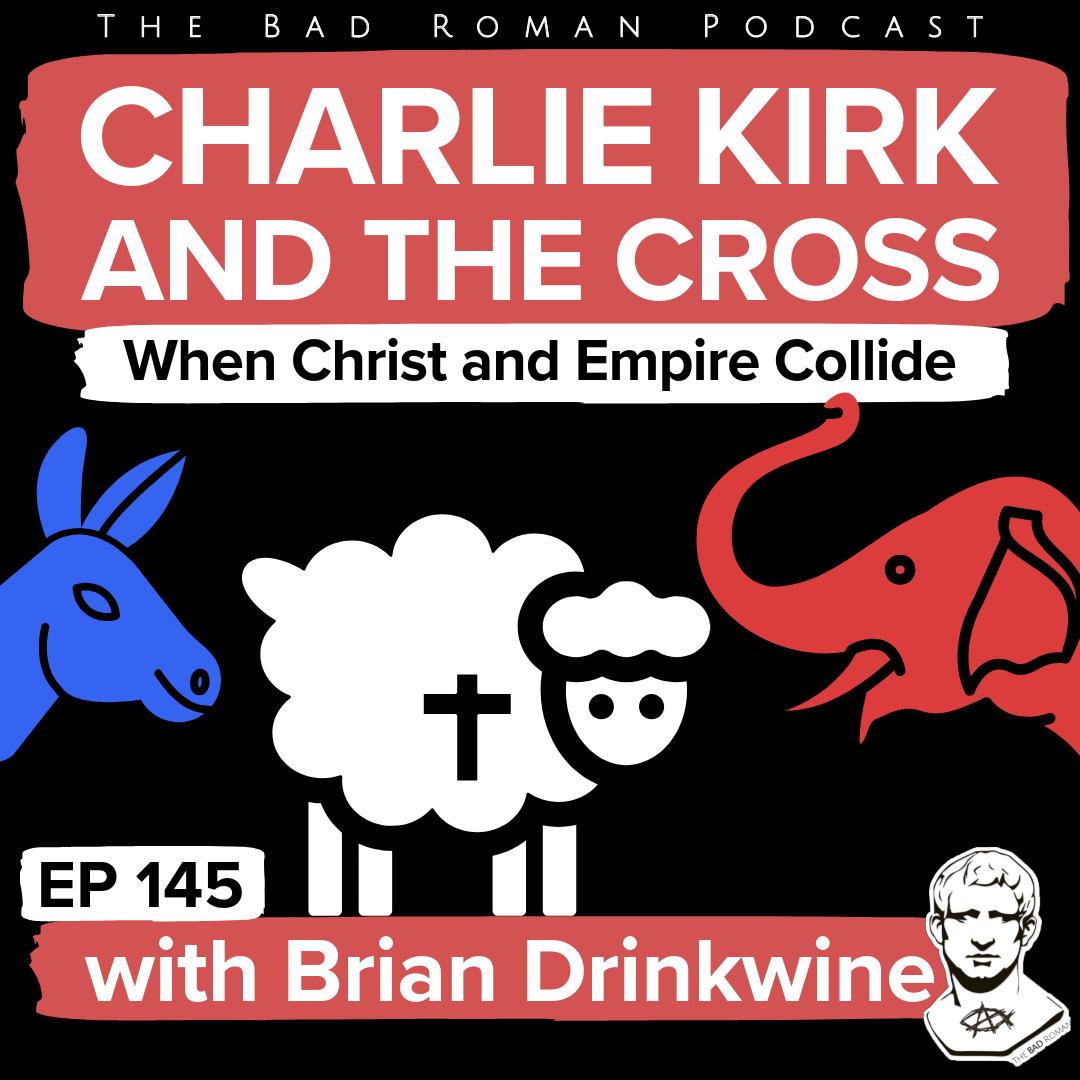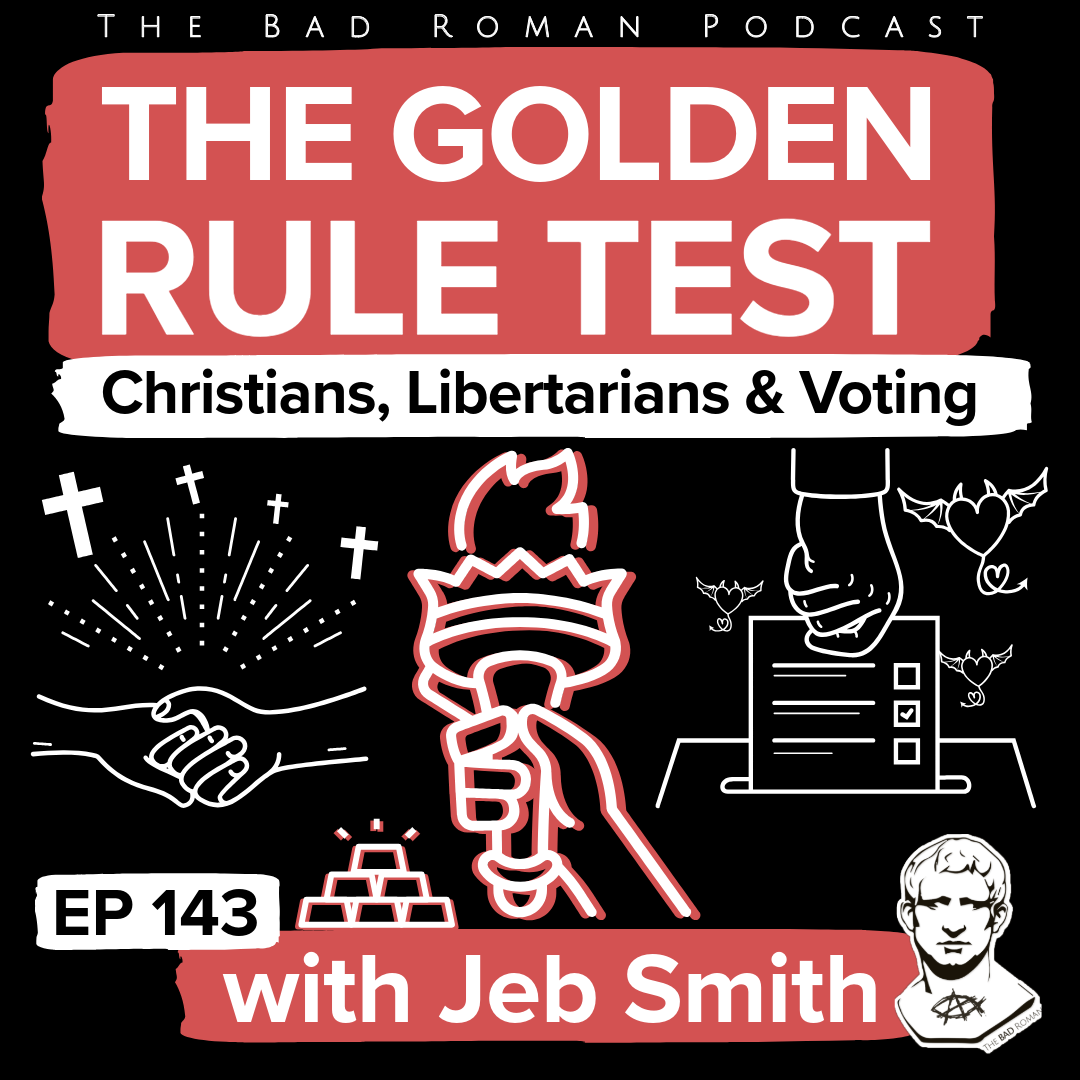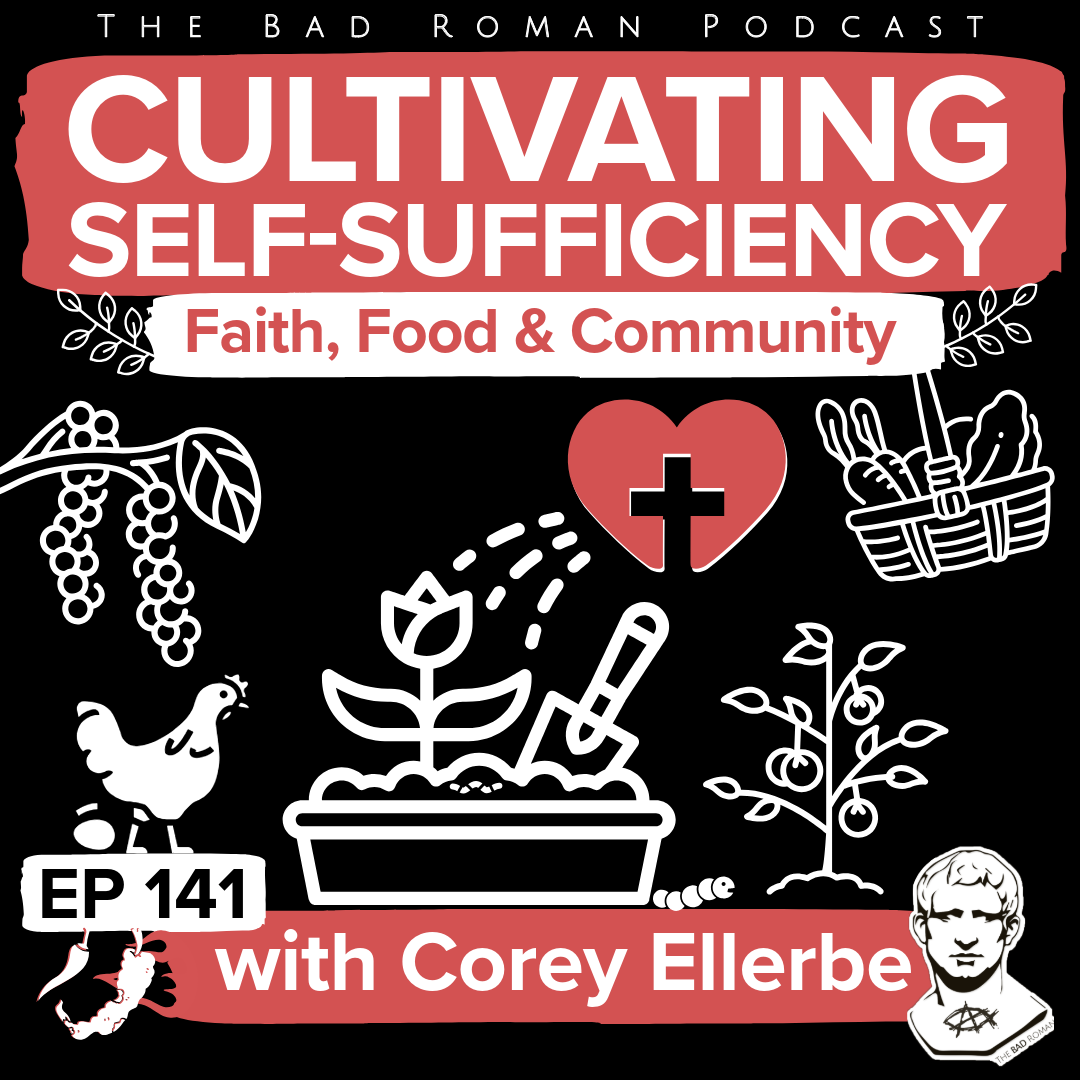How do non-Christians see us? Do they see people shaped by Jesus, or people shaped by the political system? When church life copies a political team, people don’t see a Savior. When the church mirrors the political system, the gospel goes quiet.
This episode is a gut check about witness. Are we so wrapped up in politics that we’re keeping people from meeting Jesus? Craig and our guest look at how Christians come across to non-Christians, and why simple, everyday kindness would change so much.
Meet our Guest
Tasha Heath may not call herself a Christian, but her life says, “No King but Christ”. Being from the South, and the right side of the political spectrum, she has stood next to Christians for years. She has watched the Sunday words and the Monday actions. What stands out to her is simple: kindness opens doors, meanness slams them.
Like many of us she believed more good people in politics would lead to a better world. She found herself swept up in activism, working inside party politics, and eventually landing in libertarian circles she thought would be an arena for real change. Instead she saw the corruption of politics was undeniable.
Today she serves neighbors in Las Vegas, helps with Food Not Bombs on Sundays, and keeps showing up for people the system leaves behind. From her view, showing up beats arguing.
Here’s why that matters for people outside the church: if what we say on Sunday doesn’t match what we do on Monday, they won’t hear anything else we say.
What outsiders actually see
When church life copies a political team – control, shaming, point-scoring – outsiders don’t see a Savior; they see a side to avoid. Tasha has watched people preach love while backing habits and policies that hurt their neighbors. From the outside, basic kindness would change a lot…fast.
Let’s slow down and make this concrete: kindness looks like learning a name, sharing a table, giving time, and keeping your word when no one is watching.
It’s about being Christ-like. Jesus is not a mascot for our camp. He is Lord.
Politics can swallow your faith
Before we talk policies, we have to talk formation. The political system doesn’t just want your vote, it wants your every day. Craig admits he once fused faith with politics. The line he uses is sharp because it’s true: “cult to statism” (01:36). Politics is not only about votes. It is about attention.
The machine wants your scroll, your emotions, your energy. Tasha’s story adds weight. She poured time into party work. She believed change was coming. Then she hit a wall – insider games, pressure, and priorities that didn’t match real people’s needs. That wake-up hurt, but it cleared the path to love actual neighbors again. If outrage is our daily diet, it will shape our souls.
“Everyday anarchy” (don’t let the word scare you)
The word anarchy sounds wild, but Craig is pointing at something ordinary. Think about your day: you help a neighbor jump a car, you take turns at a four-way stop, you swap tools on Saturday. No one is forcing you. That’s cooperation.
“98% of our lives we live as anarchists… it’s that other 2% where the state gets involved and screws everything up.” — Craig (24:50)
This matters because the way of Jesus is consent and care, not compulsion.
Prisons, “crimes,” and making money off pain
If you want to know what a society values, watch who it cages and why. Tasha points to prisons because they reveal the gap between our words and our ways. She calls what she’s seen “absolute slavery,” people locked up for victimless “crimes” and working for pennies while others profit. Craig offers a crucial step if we want fewer people behind bars for marijana in particular: don’t just legalize; decriminalize.
“It is absolute slavery… and we still have people in jail for what the state is making billions off of.” —Tasha (25:40)
These are not talking points. These are image-bearers. If Jesus is Lord, then people are not “inputs.” They are not “cases.” They are worth more than someone’s quarterly bottom line.
Jesus shows us what God is like
Let’s zoom out. Jesus is the clear picture of the Father. If our reading of Scripture gives us permission to crush enemies and excuse cruelty, we’re reading it like empire, not like Christ. Jesus corrects bad theology…then and now.
So our question becomes simple: do we look like Jesus when we disagree?
Flags and loyalty
Symbols teach us, even when no one talks. When a church flies a national flag in the sanctuary, it sends a message about who is in charge. Craig is blunt about how that lands on him:
“I’m not attending that. I know where their allegiance is. It’s not to Jesus.” — Craig (35:26)
He’s seeing more fruit in one-on-one talks than in big stage fights. That mirrors the early church, homes, tables, love.
Vegas reality check
Big ideas are easy. Heat is not. Las Vegas hits 115°. Tunnels flood. People sleep outside while government programs fail. This is why Tasha doesn’t wait on the next bill to pass. She brings water, socks, shade, and time.
You can argue online for hours, but a cold bottle of water takes ten seconds and tells the truth about what you believe.
Craig adds a hard story: a pastor arrested for letting people sleep at the church. When mercy clashes with policy, you find out what we really value.
What actually draws people
If pressure could save people, we’d have saved the world by now. What opens hearts is presence—showing up, week after week, with steady kindness. That’s how trust grows.
“Consistency and consent—the two keys.” —Tasha (46:05)
Consistency means you keep your word. Consent means you don’t force people. That’s not just good manners. That sounds like Jesus.
A Simple Path Back
Slow down: read Matthew 5–7 out loud this week.
Make a list: three neighbors or co-workers you can serve.
Bring something small: water, socks, a meal, your time.
Use names: ask a story question and listen to the end.
Repent quickly: if you post in anger, own it. Make it right.
Keep it going: small steps, every week. This is how love grows.
🎧 Listen & Reflect
🎧 Hear: Listen to the episode to on how outsiders see Christians
💬 Ask: Where am I leaning on political power instead of Kingdom love?
📖 Read: Matthew 5–7 (enemy-love, quiet generosity, integrity)
🤝 Practice: Bring supplies to a local encampment this week. Learn names. Go back next week.
Episode Timestamps:
(00:00) How people see Christians
Jesus or the political system?
If church feels like government, people miss Christ
(01:36) “Cult to statism”
We’ve all gotten wrapped up in politics
Resetting loyalty: No King but Christ
(06:49) Party work, seeing ballot-stuffing, and heartbreak
Helping at local meetings
“I thought we could change things”… then reality hit
(10:56) Teens, social media, and constant anger
A 14-year-old who thinks about politics all the time
Parents’ regret for pulling kids into it
(23:47) Everyday anarchy, 98% cooperation
Most life is neighbors getting along
Trouble starts when the political system steps in
(24:50) Prisons, pennies, and decriminalization
Victimless “crimes” and cheap prison labor
Don’t just legalize, decriminalize
(29:22) Is organized religion about control, or real love?
Pressure and image vs. freedom and care
Consent and hospitality beat coercion
(31:28) Jesus shows us what God is like
He corrects bad ideas about God
Read Scripture through Jesus, not politics
(32:43) Homelessness in Las Vegas: show up in person
Tunnels, floods, and 115° heat
Community care > waiting on programs
(34:10) Pastor arrested for letting people sleep at church
Mercy vs. policy
When rules fight compassion
(35:26) Flags in church and where loyalty points
“I know where their loyalty is, it’s not to Jesus”
One-on-one talks beat big battles
(36:31) “Food Not Bombs” Sundays
Feeding people, not building up institutions
Small, local, hands-on help
(40:05) Craig’s shift: flag vs. cross
Leaving team red/blue for the Kingdom
Putting Jesus first again
(46:05) “Consistency and consent:” what draws people
Lead by example, not pressure
Love people in ways they can feel
(47:58) Wrap & invitation
Practice presence this week
























